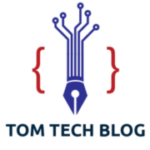Data Governance: Unlocking the Potential of Data Management

In today’s data-driven world, organizations are inundated with vast amounts of data generated from various sources. This data holds the potential to drive strategic decision-making, enhance customer experiences, and improve operational efficiencies. However, without a structured approach to managing this data, organizations risk drowning in a sea of information, leading to inefficiencies and missed opportunities. This is where data governance comes into play. Data governance refers to the framework and processes that ensure data is managed effectively, securely, and in compliance with relevant regulations. It involves defining roles, responsibilities, and procedures for data management, ensuring data quality, and establishing policies for data access and usage. By implementing a robust data governance framework, organizations can unlock the full potential of their data assets, turning raw data into valuable insights that drive business success.
Benefits of Implementing a Data Governance Framework
Implementing a data governance framework offers numerous benefits that can significantly enhance an organization’s data management capabilities. One of the primary advantages is improved data quality. By establishing clear guidelines and standards for data entry, storage, and maintenance, organizations can ensure that their data is accurate, consistent, and reliable. This, in turn, leads to better decision-making, as stakeholders can trust the data they are using to inform their strategies. Another key benefit is enhanced data security and compliance. With the increasing number of data breaches and stringent data protection regulations, such as GDPR and CCPA, organizations must prioritize data security. A data governance framework helps organizations identify sensitive data, implement appropriate security measures, and ensure compliance with legal and regulatory requirements. This not only protects the organization from potential fines and reputational damage but also builds trust with customers and partners.
Data governance also facilitates better data integration and interoperability. In many organizations, data is stored in silos across different departments and systems, making it challenging to gain a holistic view of the business. A data governance framework promotes data standardization and integration, enabling seamless data sharing and collaboration across the organization. This leads to more comprehensive insights and a unified approach to achieving business objectives.
Furthermore, data governance supports effective data stewardship and accountability. By clearly defining roles and responsibilities for data management, organizations can ensure that data is handled appropriately throughout its lifecycle. This fosters a culture of accountability, where employees understand the importance of data governance and actively contribute to maintaining data quality and security. For organizations looking to implement a data governance framework, there are various software solutions for effective data governance in organizations available.

These solutions provide tools and features to streamline data governance processes, automate data management tasks, and monitor compliance with data policies.
Challenges and Considerations in Data Governance Implementation
While the benefits of data governance are clear, implementing a data governance framework is not without its challenges. One of the primary challenges is securing buy-in from stakeholders across the organization. Data governance requires collaboration and cooperation from various departments, including IT, legal, compliance, and business units. It is essential to communicate the value of data governance and demonstrate how it aligns with the organization’s strategic goals to gain support from all stakeholders. Another challenge is managing the cultural change associated with data governance. Implementing a data governance framework often requires a shift in mindset, where data is viewed as a valuable asset that needs to be managed and protected. This cultural change can be difficult to achieve, especially in organizations with entrenched data management practices. It is important to provide training and education to employees to help them understand the importance of data governance and how it impacts their roles.

Organizations must also consider the scalability and flexibility of their data governance framework. As the organization grows and evolves, the data governance framework must be able to adapt to changing business needs and technological advancements. This requires a flexible approach that allows for continuous improvement and refinement of data governance processes.
Future Trends in Data Governance
As technology continues to evolve, so too does the field of data governance. One of the emerging trends is the use of artificial intelligence (AI) and machine learning (ML) to enhance data governance processes. AI and ML can be used to automate data classification, identify data quality issues, and detect anomalies in data usage patterns. This not only improves the efficiency of data governance processes but also enhances the accuracy and reliability of data management. Another trend is the increasing focus on data ethics and responsible data use. As organizations collect and analyze more data, there is a growing need to ensure that data is used ethically and responsibly. This includes considerations around data privacy, consent, and the potential biases in data-driven decision-making. Data governance frameworks must incorporate ethical guidelines and principles to ensure that data is used in a way that aligns with the organization’s values and societal expectations.
Finally, the rise of cloud computing and big data technologies is reshaping the data governance landscape. Organizations are increasingly leveraging cloud-based solutions to store and process large volumes of data. This requires a re-evaluation of data governance strategies to address the unique challenges and opportunities presented by cloud environments. Organizations must ensure that their data governance frameworks are equipped to handle the complexities of cloud-based data management, including data security, privacy, and compliance.



